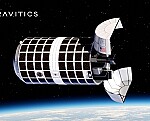North Korea Claims Successful Spy Satellite Malligyong-1 Launch
In a move that has heightened tensions between North Korea and the United States, North Korea announced on Wednesday that it had successfully placed a spy satellite into orbit, marking its third launch attempt of the year. The launch of the Malligyong-1 satellite is a significant development in North Korea's efforts to establish a space-based surveillance system.
While North Korea's claims have not been independently confirmed, the international community is likely to view this as a provocative action. The United Nations prohibits North Korea from conducting satellite launches, considering them a pretext for testing missile technology. This latest launch is certain to draw strong condemnation from the United States and its allies.
North Korea's state authorities released a statement saying that the Malligyong-1 satellite was placed into orbit on Tuesday night following liftoff from the country's primary launch center. The statement also revealed that North Korean leader Kim Jong Un personally observed the launch. According to North Korean officials, this spy satellite launch is intended to enhance the country's military readiness in response to perceived hostile actions by its rivals, namely South Korea and the United States.
Both South Korea and Japan reported detecting the launch, with Japan even issuing a J-Alert missile warning for Okinawa, urging residents to seek shelter. South Korea's military stated that it remains ready and is closely coordinating with the U.S. and Japan in light of the launch.
Japanese Prime Minister Fumio Kishida expressed concern over the launch, stating, "Even if North Korea calls it a satellite, the firing that uses ballistic missile technology is a clear violation of related United Nations Security Council resolutions. It is also a serious threat that affects the safety of the people."
North Korean leader Kim Jong Un has long coveted spy satellites as key military assets to modernize his weapons systems. This move comes after two earlier attempts this year, which ended in failure due to technical issues. The delay in the third launch attempt is believed to be connected to North Korea receiving technological assistance from Russia for its spy satellite program.

The alleged deal between North Korea and Russia has raised concerns. It reportedly involves North Korea supplying conventional arms to replenish Russia's ammunition stock drained in its war with Ukraine, while seeking Russian assistance to enhance its nuclear and other military programs. Both countries have denied these allegations, which would violate U.N. bans on weapons trading involving North Korea.
The successful launch of a spy satellite holds strategic significance for North Korea. It would enable the nation to monitor South Korean and U.S. activities more effectively and potentially improve the functionality of its intercontinental ballistic missiles (ICBMs).
South Korean President Yoon Suk Yeol commented, "If North Korea succeeds in launching the military reconnaissance satellite, it would signify that North Korea's ICBM capabilities have been taken to a higher level. Therefore, we will have to come up with reinforced countermeasures."
Experts believe that this launch is part of a broader North Korean strategy aimed at prioritizing military capabilities over economic development, while further aligning with Russia and China rather than pursuing diplomacy with the United States.
North Korea has conducted approximately 100 missile tests since last year in its quest to establish a reliable arsenal of nuclear weapons. Possessing the ability to place a satellite into orbit suggests North Korea could build missiles capable of carrying warheads with similar sizes to the satellite. As a response, South Korea has suggested suspending a 2018 inter-Korean agreement to reduce tensions and resuming front-line aerial surveillance and firing exercises.
The United States, South Korea, and Japan have consistently condemned North Korea's satellite launches, but attempts to address the issue at the United Nations Security Council have been stymied by permanent council members Russia and China. North Korea's leader, Kim Jong Un's sister, Kim Yo Jong, has criticized the U.N. Security Council as biased and discriminatory.
In conclusion, North Korea's successful spy satellite launch adds a new dimension to the already tense situation on the Korean Peninsula. It underscores the country's determination to advance its military capabilities despite international sanctions and opposition. The international community will be closely monitoring the developments and the response of key players in the coming weeks.










